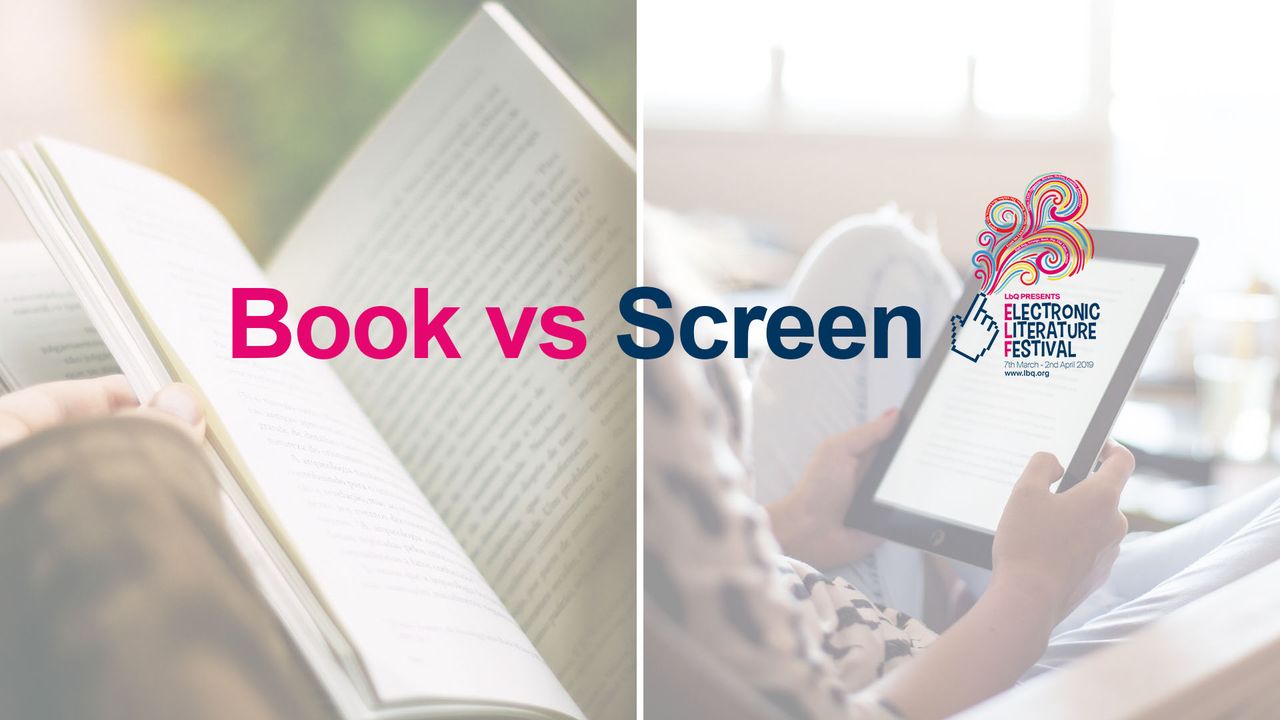Book vs Screen: are we still debating this?
To kick off our Electronic Literature Festival, we decide on the winner of the book vs screen debate.

The heavyweight championship of reading and the judges have their decision. The fight is over and both have fought worthy fights, but there can only be one winner. The winner is: the joy of reading.
The Digital Age and how it affects education is a well-trodden path for teachers and the media. There have also been investigations into the effects of the digital age on the reading brain - but they often focus on the content of what is read and so readily available for young people ie. on social media sites. Maryanne Wolf’s series of letters in Reader, Come Home (2018) takes a deep dive into how the digital revolution could be creating laissez-faire readers who consume without further thought - a lack of deep reading. What if we used the medium but upgraded the content?
The benefits of reading are well-known: increased skills in writing, empathy, creativity, relaxation, I could go on. Are the benefits any less when the reading is done on a screen? It seems unlikely that the benefits of reading can be impaired by a digital platform. It is time that we recognise the major benefits of the choice of reading digitally.
Engagement
It’s a hard job getting some young people to pick up a book. Whether it’s from past bad experiences of reading; a lack of enthusiasm at home; a difficulty with reading; or just a plain “don’t like it.” A digital platform offers a different approach and medium that could engage readers who are otherwise put off. Young people already spend long times looking at a screen. Instead of taking the screen away, what about replacing the content on the screen? A tablet can become a classic book at the touch of a few buttons, and the platform of a screen may provide a much less intimidating medium for students who otherwise despise books. If reading on a screen is a more engaging and comfortable way for a young person (or older person, for that matter) this should be embraced, not feared or shamed.
Accessibility
It is true that books are very accessible, and for free if you are lucky enough to still have a functioning local library. But if you do have access to a tablet, a tablet is a library: a whole world of texts and sources are available online. Books are often cheaper digitally, sometimes free. If you work in a school and all students have access to a tablet, copies of books can be put on all tablets at the click of a button - hours aren’t required to laminate them, and it is less common for a tablet to go missing compared to a book. If you do have tablets, why not use them to read a wealth of books?
Choice
Screens won’t replace books. If they were going to, they would have by now. The Kindle has been in existence for over 10 years now, and physical book sales still continue. What digital platforms like Kindles and tablets provide is the ability to choose. If you’re a reader who likes to smell fresh pages and hear the crack of a spine, that option is still very much alive. But if you’re a reader who finds the weight of the Harry Potter books an inconvenience, there is another way - and that’s okay.
We need to stop the shaming of digital reading habits and embrace the luxury of choice we have been provided by technology.
Screen vs books? Who cares, as long as you’re reading.
Learning by Questions Electronic Literature Festival launches on the 7th March 2019, World Book Day and finishes on April 2nd 2019, International Children’s Book Day. We’re spending the month celebrating literature in all its forms. Look out for free downloadable resources for teachers of English, articles, competitions and live Q and As via our social media channels.